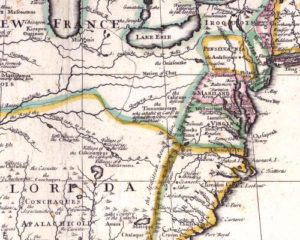Sometimes graduate students are the older siblings you didn’t know you had.
In my Orange Key tours, I always emphasize how exciting it is to be an undergraduate student at Princeton. Unlike many other leading research institutions, Princeton maintains a strong focus on undergraduate teaching. This results in an unusual dynamic between undergraduates and graduate students on campus. In general, the two populations are pretty segregated. Aside from the preceptor-student relationship (and, of course, the ReMatch relationship), I haven’t encountered a whole lot of avenues for collaboration between undergraduates and graduate students in our research projects.

In the past year and a half, I’ve grown increasingly interested in Indigenous Studies – a really cool academic field focusing on different Native communities across the world. As of right now, I’m hoping to ground my junior independent work in this field. But because there’s no official certificate program in Indigenous Studies (yet), I’ve had to get a bit creative in scouting out the faculty and courses that will be most useful to me in my research. As I was scrolling through the Program in American Studies’ website, I noticed a page dedicated to something called the “Princeton American Indian and Indigenous Studies Working Group (PAIISWG).” Curious, I contacted its leader and arranged to meet with them to discuss their work.
As I soon learned, the group consists of a few graduate students in different disciplines doing research work in Indigenous Studies. Because graduate students don’t teach classes at Princeton, I recognized none of its members. But since that first meeting, I’ve gained so much from this connection. What excites me most about connecting with these graduate students is that, because our two populations are so segregated, we each know things the other doesn’t.
They are much further advanced in their studies and research skills, and more closely in touch with academic programming outside of course offerings. As such, they’ve directed me towards super helpful tools and sources for my research and kept me informed about exciting Indigenous Studies events around campus. I was particularly excited to receive the itinerary for a conference they’re organizing this spring, with a long list of contemporary Indigenous Studies scholars from across North America. On the other hand, because I live on campus, I have been able to connect them with faculty and campus resources that they didn’t even know existed – especially newer resources like Kanopy. And because we’re all researching similar areas, we’re working on building a listserv for all of us to share our findings, publicize events, and receive feedback on our work.
Though our professors do an excellent job advising us in our research, it can be really exciting and helpful to have graduate student allies in our field of interest – especially as we get started on our independent work. Connecting with graduate students has been so valuable for my work and I hope we can continue to collaborate with each other as the year goes on. To find graduate students in your field, scroll through your department’s website or ask a professor to connect you! Though it might feel a bit scary at first, reaching out to graduate students is ultimately one of the easiest and most beneficial connections you can make while at Princeton. And in the end, you may even begin to feel like family.
–Rafi Lehmann, Social Sciences Correspondent

